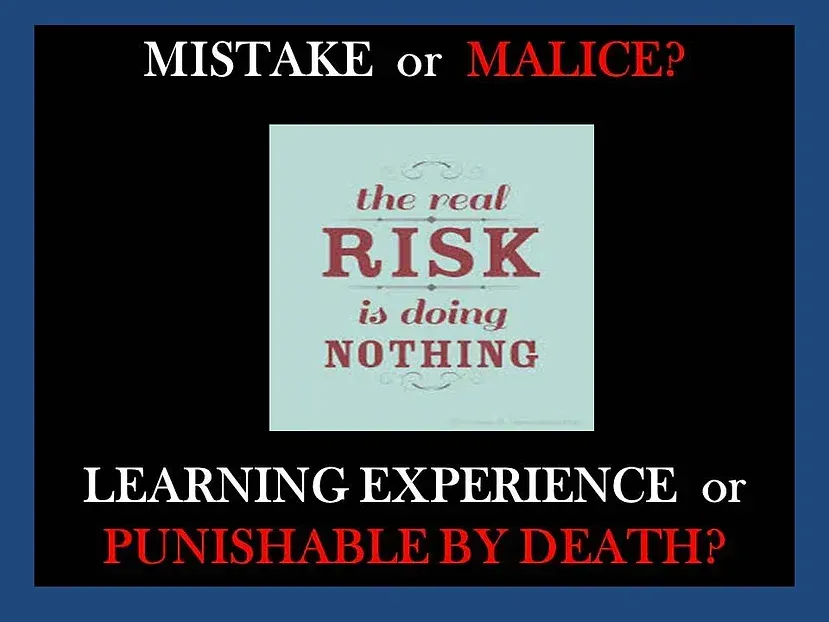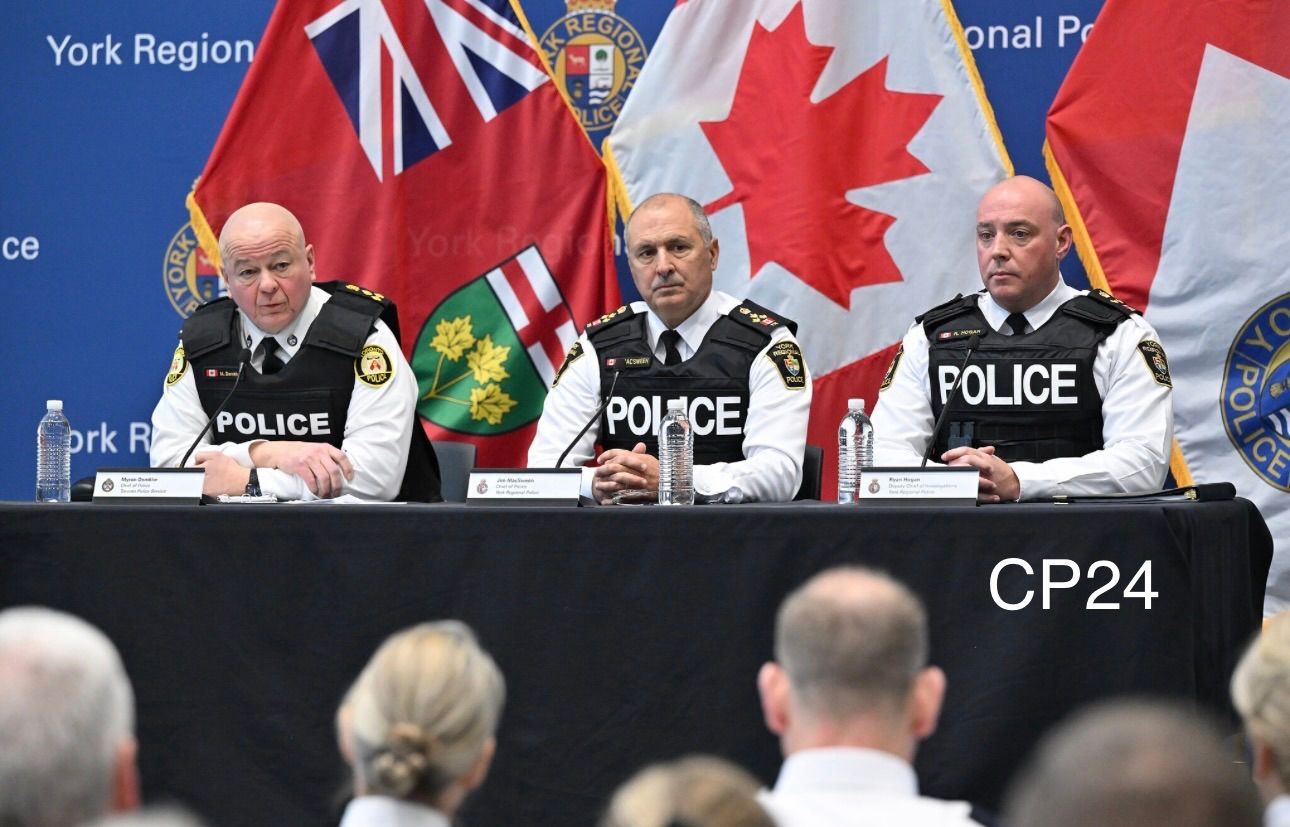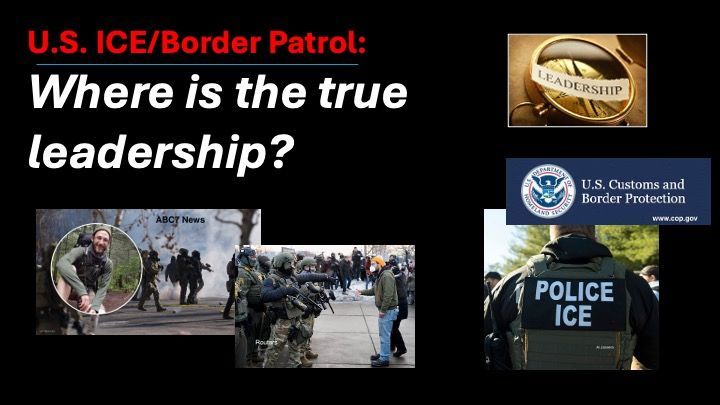New Paragraph
I recall a leader in a large police service that progressed very rapidly through the ranks without any operational experience whatsoever. This “leader” was never in a position to make a hard decision, never took any risk and therefore never made any mistakes that were high profile or came to the attention of the senior executive.
When subsequently placed in a very high-ranking operational position, the individual was surrounded by some extremely capable people who appropriately guided their boss to success. That situation occurred more by good luck than good management. But when the leader rose to the pinnacle of the police service and had the ability to personally pick an executive team, only those that would never do anything but acquiesce to the leader’s every thought and suggestion were selected.
This had a disastrous impact on the organization. Because the leader had no appreciation for what occurred in major operations or investigations, the leader micromanaged by asking ridiculous questions constantly, which worked their downstream through the executive and supervisory ranks – non-stop. The real leaders below – who truly knew what they were doing and how, then felt completely untrusted and quickly grew demoralized. The barrage of second-guessing then forced them to make dumb queries to the supervisors below them in order to respond above, causing further unnecessary effort, waste of time and tremendous angst down the line.
Then, God forbid some operational member would have the nerve to make an honest mistake. Let’s face it, in 24/7 patrol operations; major crime investigations; and tactical ops, the occasional bad thing will occur – not through malice or incompetence, but because we do not yet hire robots. There will always be an element of risk associated with decision-making. The option is to not take risk and not make any decision, but that is not in the best interest of the members of the public that police are sworn to serve. Well intended and sound decisions will sometimes go awry through no singular persons fault. When that happens, immediate contingency plans need to snap into place to mitigate any damage; the situation needs to be later debriefed; equipment, policy and training implications assessed and improved where possible.
However this particular Chief would write off any supervisor or executive that may have had any involvement in the “error”. The individuals would become radioactive in the minds of the senior executive that surrounded that Chief. None would ever raise their hand to defend and support the members. Those involved would then be forever unfairly remembered across the organization as “He’s the Commander from the John Doe shooting mess”. Or “She’s the Inspector that screwed up the Jane Doe investigation”.
This occurred in part because the Chief had never had to make a tough decision and/or because of a total failure of leadership.
Over the years to come, little mistakes then evolved into big internal messes, because fearful subordinates involved in operational errors remembered how Officer X or Y had been pigeon-holed over some past perceived error then thrown under the bus. Some teams chose instead to form conspiracies in an attempt to work their way out of the wrath of the senior executive through a series of mistruths rather than own up to the error. The bigger issue then became the lying – which obviously shouldn’t occur, but if the members had felt they would be fairly assessed and supported following an honest mistake, they wouldn’t have tried to cover it up. A number of good police officers fell into that trap, some being forever ruined as a result and some leaving the organization and moving on to successful careers elsewhere. I am not defending dishonest police officers whatsoever.
My point here is this:
Real leaders know that on occasion things will go bad. They also know that the people they lead are human and will occasionally err.
They understand that there is a huge difference between malicious acts, total carelessness and well-intended mistakes. Accordingly, the punishment must fit the crime, so to speak.
The well-developed leaders that have “been there and done that” will have had opportunities to fail; taken risk; and occasionally made what turned out to be the wrong decision. But they learned from the experiences and developed valuable scar tissue to help them face the next crisis, with the support of the true leaders above them.
As well, some senior leaders with little to no operational experience, still exhibited stellar leadership by purposely surrounding themselves with credible leaders that would always tell them the truth and push back accordingly when then they were micromanaging. Their immediate subordinates would simply tell them, “Here’s what happens in these situations and here’s how we deal with it. He/she knows what to do, so let them do it.” The leader would listen to that sound advice. Then if things didn’t go well, the leader would ensure things were reviewed, assessed, debriefed and made better for the future. Those involved in the honest mistake incidents would be treated with respect, supported and provided with any additional training, coaching, etc., as required. The members directly involved and those watching from the sidelines would actually see the modelling of true leadership and then feel confident in taking risk and making decisions going forward.

It’s not rocket-science. Where possible, organizations should promote people with proven hands-on experience AND demonstrated leadership ability. But when the person being promoted doesn’t have the experience, he or she better have the leadership ability to listen to the people around them and then properly discern malice from error. Our people and our organizations deserve that.




